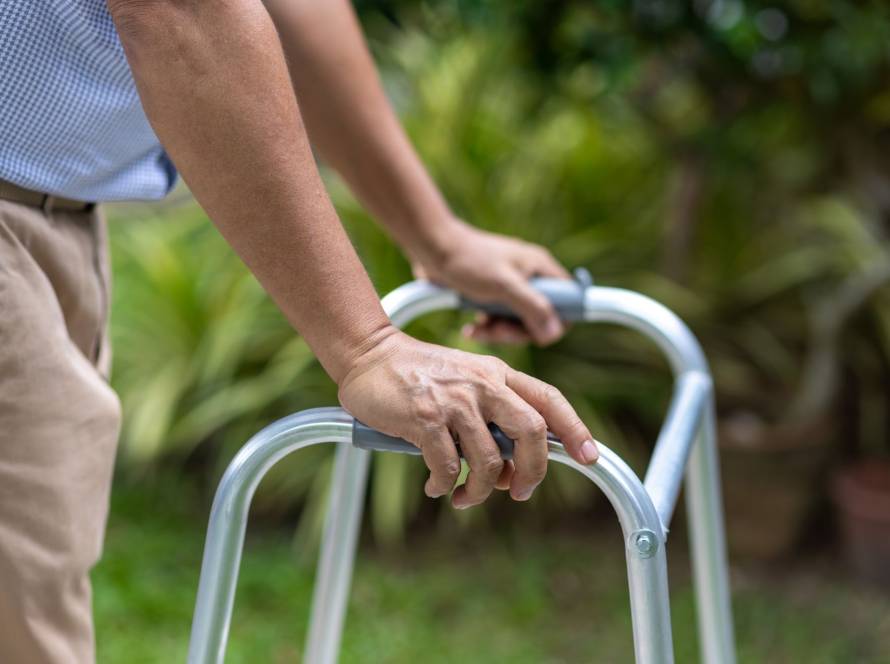People often wonder how alcohol affects aging, particularly its long term health effects. A glass of wine with friends might be a beloved tradition, but science shows a complex relationship between drinking and how our bodies age.
Let’s look at what science tells us about how alcohol affects our lifespan, its influence on our cells, brain function and vital organs. This deep dive into both genetic factors and visible aging signs will help you understand how your drinking habits shape the way you age.
How alcohol changes your cells
Scientific studies now show how alcohol deeply affects our cells’ inner workings. Alcohol triggers many changes at the molecular level that speed up how quickly we age.
DNA methylation patterns
DNA methylation serves as a key indicator of biological aging and alcohol consumption changes these patterns significantly. Scientists at Northwestern University found that heavy drinking speeds up epigenetic aging. People who regularly engaged in binge drinking aged 1.22 to 1.55 years faster than those who didn’t drink.
Oxidative stress effects
Alcohol creates substantial oxidative stress in cells through several ways:
- More reactive oxygen species (ROS) production;
- Higher levels of inducible nitric oxide synthetase (iNOS);
- Activation of toll like receptors (TLRs) and inflammatory cytokines.
These changes start a chain reaction that damages cells and speeds up aging. Researches show that alcohol also activates microglial cells through toll like receptors and purinergic P2X receptors, which magnifies oxidative stress and inflammation.
Mitochondrial damage
Alcohols effects on mitochondria, the powerhouses of our cells, raise serious concerns. The damage shows up as:
- Disrupted energy production;
- Damaged mitochondrial DNA (mtDNA);
- Reduced oxidative phosphorylation activity;
- Higher risk of mitochondrial permeability transition.
Alcohol affects the mitochondrial permeability transition pore (mPTP), which makes cells more likely to suffer from calcium induced damage. This especially affects energy hungry neurons like GABAergic interneurons, which have more cyclophilin D and face a higher risk of mitochondrial problems.
These cellular changes also affect astrocytes, vital brain cells that control neuronal activities. Alcohol disrupts how astrocytes and neurons communicate by changing adenosine signaling pathways.
These cellular changes build up over time and contribute to both immediate and long term aging effects. The damage hits hardest in areas that need lots of energy, such as the brains fast spiking neurons. Through these multiple pathways, drinking speeds up how quickly cells age, which might lead to early aging and greater health risks.
The brain aging connection
Scientists have found remarkable links between drinking alcohol and how fast our brains age. Advanced epigenetic research shows clear patterns that reveal how our drinking habits directly affect our brains biological age.
Memory center changes
The Coronary Artery Risk Development in Young Adults (CARDIA) study has revealed worrying data about alcohols effect on memory centers. The research shows people who took part in binge drinking had major changes in their GrimAge acceleration (GAA) measurements, a crucial sign of biological aging.
The research showed each extra day of binge drinking led to:
- A 0.11 year rise in GAA at year 15;
- A 0.21 year rise in GAA at year 20.
These changes affect areas with high numbers of GABAergic interneurons that spike fast and need lots of energy. Brain regions that have more interneurons are more likely to get damaged by alcohol.
Neural pathway disruption
As mentioned above, studies show that long term alcohol exposure changes how mitochondria work in neurons. The risk varies by neuron type and brain region, which explains why some brain areas age faster with alcohol use.
Early life drinking might affect brain health more severely. Both total alcohol consumption and recent binge drinking make the brain age faster independently, with liquor showing stronger links to higher GAA values.
The research revealed different types of alcohol affect brain aging differently. Beer and wine showed little, but liquor continued to show strong links to faster brain aging markers.
Genetic factors in alcohol processing
New research from several institutions shows how our genes affect the way our bodies handle alcohol. Scientists have discovered why people age differently even when they drink similar amounts, related with gene variations related to enzymes:
- Cytochrome P450 (CYP450) enzymes transform alcohol into acetaldehyde;
- These enzymes create superoxide anion (O-2) and hydrogen peroxide (H2O2) during this process;
- Your genetic makeup determines how fast you break down alcohol.
These lower levels substantially affect oxidative balance and make cells more likely to show age related damage.
Impact on vital organs
Research from multiple institutions shows how alcohol substantially affects vital organ systems. Scientists have uncovered complex patterns that speed up biological aging.
Liver health markers
Studies over time show that alcohol directly changes liver function through several pathways. Scientists at Northwestern University discovered that regular alcohol intake changes DNA methylation patterns in liver tissue. These changes show up through increased GrimAge acceleration (GAA) markers. Binge drinkers age up to 1.55 years faster than non-drinkers.
The liver breaks down alcohol through cytochrome P450 enzymes and creates harmful compounds like superoxide anion and hydrogen peroxide. This process reduces key antioxidants:
- Glutathione;
- Superoxide dismutase;
- Catalase.
Heart tissue changes
Scientists have found that alcohol affects heart tissue through specific mechanisms. Their research shows chronic drinking affects mitochondrial function in cardiac cells by:
- Reducing mtDNA-encoded subunits;
- Decreasing oxidative phosphorylation;
- Increasing vulnerability to calcium induced damage.
Heart tissue becomes more susceptible to permeability transition because of higher cyclophilin D levels. This susceptibility varies by cell type and exposure time. Some cardiac regions show greater vulnerability to alcohol induced changes.
Kidney function
Recent research has found an interesting link: people who drink alcohol in moderation may experience a slower decline in kidney function compared to non-drinkers.
One of the potential reasons for this protective effect is the presence of polyphenolic compounds in alcoholic beverages, especially in wine and certain types of beer. Polyphenols are powerful antioxidants that help fight inflammation and oxidative stress, two major contributors to kidney disease.
For example, resveratrol, a well known polyphenol found in red wine, has been shown to improve kidney function in people with type 2 diabetes. Studies suggest that it can lower levels of serum creatinine, urea nitrogen and total cholesterol, all of which are markers of kidney health.
Another possible reason behind alcohol’s kidney protective effects is its impact on insulin sensitivity. Research shows that moderate alcohol consumption can improve the bodys ability to regulate blood sugar levels. Since insulin resistance is a major risk factor for kidney disease, any improvement in insulin function could help protect the kidneys.
Scientific evidence on longevity
A groundbreaking study from CARDIA brings fresh insights about how alcohol affects our lifespan. Scientists used advanced DNA methylation analysis to measure exactly how different drinking patterns influence how long we live.
Population studies
The Coronary Artery Risk Development in Young Adults Study followed 1,200 people for many years. The results showed clear patterns in how alcohol affects aging. Scientists tracked 1,030 participants at year 15 and 945 participants at year 20. Their findings were eye opening:
- People who didn’t drink kept steady aging markers;
- Regular drinkers aged at different speeds;
- Heavy drinkers aged much faster.
Age acceleration data
Scientists used the Illumina MethylationEPIC Beadchip to measure exactly how alcohol speeds up aging. The numbers tell a clear story:
- Each extra day of heavy drinking adds 0.11 years to biological age at year 15;
- This effect grows to 0.21 years by year 20;
- Heavy drinkers age 1.22 to 1.55 years faster than non-drinkers.
The team used strict quality controls and removed samples that had poor methylation measurements or unusual results. They used model based corrections and adjusted for measurement bias to get reliable aging markers.
The results stayed true even after accounting for age, sex, race, education, smoking history, BMI and physical activity. This thorough approach confirms the strong link between drinking patterns and faster aging.
Science shows that careful alcohol consumption plays a vital part in aging well. The drinking choices you make today will shape your biological age tomorrow. These choices affect everything from your cellular health to how long you might live.
Read more about:


